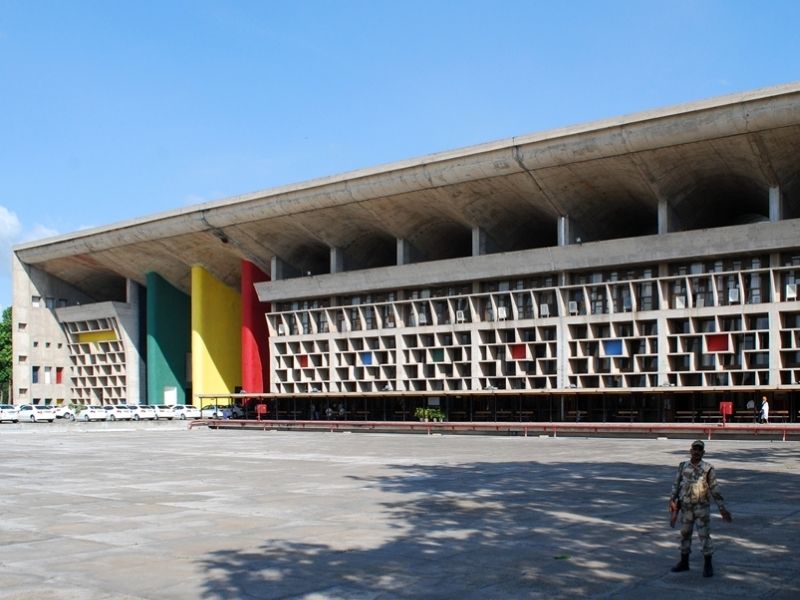Private unaided schools in Chandigarh are set to appeal to the Supreme Court against the Punjab and Haryana high court’s order (May 28) directing private schools to upload financial statements on their school’s website to ensure transparency and prevent profiteering and charging of capitation fees. However, private school managements are holding on to their argument that uploading their financial statements in the public domain “would render them vulnerable to unbridled dissection of accounts by the public and possible resultant unwarranted attacks, which would create hurdles in the smooth functioning of the institution.”
Referring to the original Punjab Regulation of Fee of Unaided Educational Institution Act, 2016, private school managements petitioned the high court of Punjab and Haryana that the original 2016 Act does not envisage disclosure of income and expenditure statements and balance sheets on the public portal by private unaided schools. It was wrongly amended (under clause (a) of the 4th proviso to s.5 of the 2016 Act) by the Central government while extending the Act to the Union territory of Chandigarh. Clauses were added to the mother Act without Parliament’s sanction.
Private schools have been asking for the notification (dated April 2018) making the provision ‘an obligation’ quashed. However, the high court’s division bench of Justice Jaswant Singh and Justice Sant Prakash dismissed the petitions filed by the Kabir Education Society representing the St. Kabir Public School, Chandigarh and the 79-member Independent Schools Association of Chandigarh on the basis that schools are not private institutions and thus maintaining transparency of accounts was in the best interests of the public.
However, schools believe transparency is not the only issue that needs to be considered and are against the basic premise of all schools being tagged as unscrupulous. Schools have been reiterating that they regularly share financial information with the state’s fee regulatory authority, the affiliating boards, income tax authorities as well as the state’s administration so cannot be faulted for lacking in transparency.
“The issue of transparency has been misconstrued and misunderstood with the emphasis laid on ‘profiteering’ and ‘capitation fees’ even though both these issues have been well-addressed by the TMA Pai judgement as well as by the state government. Schools have also accepted that any fee charged beyond the declared fee can be construed as profiteering and the state has a powerful fee regulation Act in place with a mechanism for parents to approach the fee committee with respect to fee or other grievances against the school. However, the high court judgement seems to absolve the fee committee from any action on the grounds of lack of expertise in financial matters (even though a financial expert is a part of the committee) and wants the parents to play the role of vigilantes! We have no choice but to appeal to the Supreme Court since our issue has not been addressed by the high court,” says Gurpreet Singh Bakshi, chief administrator, St. Kabir Public School.
“The provision to share financial statements online will also prove inadequate to create transparency with respect to umbrella institutions having more than one educational institution since these trusts submit a single financial statement on behalf of the group,” adds Bakshi.
While the high court judgement leaves educational institutions open to public scrutiny, the court did reiterate that institutes had the freedom to fix their own fee structures taking into consideration the facilities and the infrastructure they provided. It also said that the revenue surplus can be used for the growth of the educational institution or institutions under the same management or society.
According to Damodar Prasad Goyal, president of the Jaipur-based National Federation of Unaided Schools, “The judgment upheld the fee regulation Act intra vires and applicable to the minority institutions too. If documents are in the public domain, parents will definitely ask questions to the school management. The Court has considered public interest paramount over the interests of the school being “charitable”.
However Dilip Thakore, editor of EducationWorld and a former Barrister of the Bombay high court, believes this judgement of the Punjab and Haryana high court is “over the top and will invite nit-picking by parent communities” and is likely to be struck down by the Supreme Court as it sanctions an egregious invasion of institutional privacy. “The societies and charitable trusts legislation prescribes sufficient disclosure by education institutions. On the contrary enforcement of this judgement will infringe the fundamental right of school promoters and managements of discretionary spending and encourage excessive interference from parents,” says Thakore.
Also read
Fee dispute leads to enrollment cancellation, NCPCR steps in
Bengaluru private schools reduce fees fearing dip in admissions
